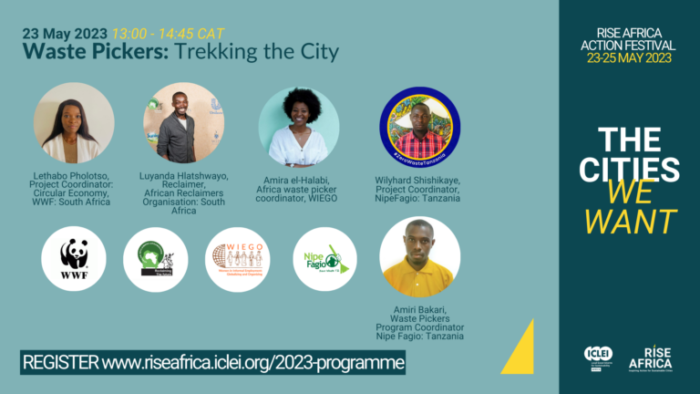What are waste pickers/reclaimers called in your city/community? To some, they are. The answers included but were not limited to essential workers, sanitation workers, cleaners, trash collectors, etc. This difference in identification highlights the awareness that surrounds the sanitation system. “Waste pickers” is a general term for sanitation workers and essential workers that maintain, clean, and empty the sanitation system. They earn a living by sorting and selling recyclables. Despite this, they frequently live on the periphery of society, working extremely long hours in deplorable conditions. Their voice’s work must be recognized and appreciated. Statistics have shown that South Africans generate at least 122 million tons of waste yearly, with only 10% being recycled or reused for other uses.
This leads to the question, how do we move forward in a system not built to reuse waste materials seamlessly?
To achieve better waste management practices, we have to rethink the complete cradle-to-cradle cycle about how does production begin, how does it transform into waste, what forms does this do this waste take, and finally, how is the waste re collected or not? In a typical cycle, in brief summation, production begins with the extraction/creation of raw materials that are then processed as needed we processed process which results in into things of need. Solid, liquid, gaseous, and hazardous waste are produced throughout this production process. These waste products all have different levels of severity and need to be managed in different ways.
” Sure, more research and outreach are needed to make this effort worthwhile. The issue of social justice and environmental stewardship are intertwined; you can’t effectively implement one without the other. One amplifies the voices of the stakeholders, while the other reinforces the ideology that those most adversely impacted should be the most heard.”
- Lethabo Pholotso, Project Coordinator: Circular Economy, WWf
Who manages the waste?
We identified that waste pickers are the ones that manage the way in terms of recollection and maintenance. However, we also identified the significant roles that we, as consumers, play because we are responsible for the majority of production behind waste management. Depending on the type of waste, sanitary care officials can recycle it, dispose of it in a landfill, incinerate it, or treat it in a waste plant. Some of these methods are used to minimize waste generation and environmental pollution, while others negatively affect the well-being of our climate and communities.
Dear WastePickers, How does WIEGO assist in the challenges placed against Africa?
“ It is an organization that helps provide technical information and experiences to help with formal employment, amongst other things. This labor support organization helps increase the quality of work for individuals. Understanding that waste pickers uphold the cleanliness and the maintenance of our communities; their work conditions impact their ability to do their job in a good and bad way. If the quality of sanitary work were high, there would be an increase in employees and then an increase in waste reconstruction.”
- Amira el-Halabi, the Coordinator of WIEGO
In the global treaty negotiation space, in the decision-making spaces, it is essential to have stakeholders/ ambassadors that can represent different sectors to be represented in these spaces. Cheap labor is exploited daily: Are we recognizing or acknowledging the more complex work of the informal sector?
Session Speakers Included:
Lethabo Pholotso, Project Coordinator: Circular Economy, WWf
Luyanda Hlatshwayo, Reclaimer, African Reclaimers Organisation: South Africa
Amira el-Halabi, Africa Waste Picker Coordinator, WIEGO
Wilyhard Shishikaye, Project Coordinator, Nipefagio: Tanzania



